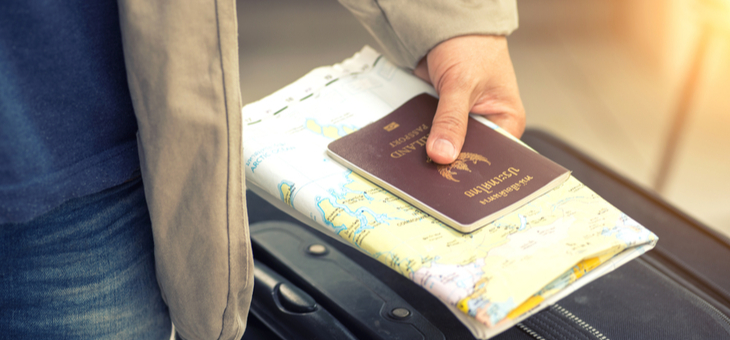Victoria wants to know about an immunity passport, and whether such certificates of immunity might be necessary for future travel.
•••
Q. Victoria
I have been forced to cancel a trip to Europe and am wondering when we will ever be able to travel back there again? I have heard talk about immunity passports being a way to get people travelling again. Will I need to get an immunity passport to travel in future?
A. An immunity passport, or immunity certificate, is a document proving that you are immune to a contagious disease.
It’s a physical or digital document that may be given to people who have recovered from a contagious disease or, in this case, the COVID–19 virus.
You would only need an immunity passport if you caught the coronavirus and have fully recovered from it. However, you would most likely have to prove you recovered and were immune for around 12 months before you’d be issued with such a document.
If you had contracted coronavirus and recovered, you would most likely have developed antibodies that would make you immune to re-infection. But, as we have seen already with reports of multiple re-infections, this may not necessarily be the case with COVID–19.
You would only be given an immunity passport if the following conditions are met:
- recovered patients have protective immunity that prevents them from being reinfected
- the protective immunity is long-lasting
- the pathogen mutates sufficiently slowly for immunity to work against most strains
- immunity tests have low false-positive rates.
Such immunity certificates could, in theory, be used to exempt holders from quarantine and social distancing restrictions once they leave and enter another country.
But, will they work for COVID–19. No-one is quite sure.
“At this point in the pandemic, there is not enough evidence about the effectiveness of antibody-mediated immunity to guarantee the accuracy of an ‘immunity passport’,” the World Health Organisation stated.
It may be at some point in the future that immunity passports are required for travel.
The Chilean government has already started issuing such statements for those who have recovered from being COVID–19 positive. Other countries such as Italy, France, Germany and Switzerland are also reportedly considering the use of such documents. The US and UK governments are in talks to develop such passports, too.
It may be more likely that such documents are used to reassure employers that staff are capable of returning to work without infecting fellow staff, but as far as using them for international travel, well, it does seem like we are a long way off from achieving this standard for COVID–19.
Once international borders reopen, you may be more likely to have regular temperature checks, random coronavirus tests and be scanned for symptoms upon leaving and entering countries.
Even then, you may only be able to travel between countries where there are little or no cases of infection and who are prepared to create a safe travel ‘bubble’ between borders.
When do you think people will be allowed to travel freely again? Would you be comfortable travelling internationally this year?
If you enjoy our content, don’t keep it to yourself. Share our free eNews with your friends and encourage them to sign up.
Related articles:
Overseas travel by July
Judi Dench is bowled over by Borneo
Grounded planes change weather forecasts

